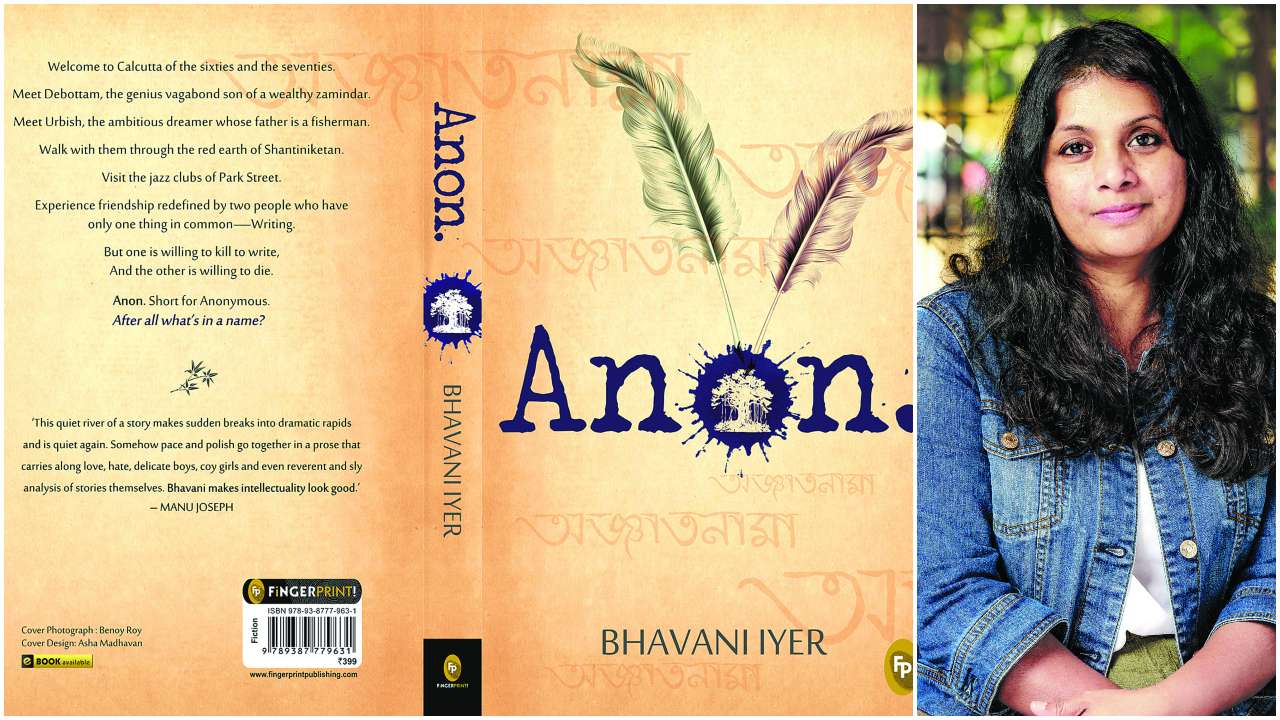
It’s not just her film Raazi’s success that has added an extra cheer to Bhavani Iyer’s voice. The screenwriter has penned her first novel, Anon. set in Calcutta of the ’60s and ’70s. Explaining the difference between writing a book and penning a screenplay, Bhavani says that as a craft, screenwriting is a lot more structured and thematic in its execution and presentation. “Also, one of the principal mantras of good screenwriting is ‘show, don’t tell’, so the manner of narrating a story for film is driven more externally,” she states. On the other hand, for a book, she says, there is no universal set of rules or format that one needs to adhere to. “Writing a book is like free-falling within your mind, and yes, it is a lot more internal,” she adds. Over to the first-time author...
Great art has the ability to startle us out of our regular, normal way of life and thinking. Beckett’s Waiting for Godot, Michelangelo’s David, Van Gogh’s Sunflowers, Beethoven’s Fur Elise, to name a few — all of these — evoke a great gasp within us that makes us momentarily aware of a higher plane of comprehension and understanding. I would always wonder, how would creators of great works feel about us, the people, assuming so much ownership over what they have created, just because we have come in contact with that art. So does that work of art belong to the artist? Or is he just a medium for its genesis? The exploration of the answer to this question led to an ideological conflict within my head. And I knew there was a story there.
I knew that I would need to set it in a world and among people that I knew and understood because of the amount of honesty that a book demands. I knew my protagonists would be writers. I have read and re-read Shakespeare and Marlowe several times since I was a kid. I was always fascinated by the conspiracy theory that surrounded these two master writers. So when I found my two main characters, Debottam and Urbish, I knew that I had to find a way to weave my two favourite writers into my world in some manner.
My father introduced reading and the world of literature to me when I was barely six years old. By the time I was seven, I knew that I wanted to grow up and be a writer. And my biggest dream was to be a published author with a bunch of books that I have written on the shelves of my library.
In November 2006, my boyfriend and I bought our first home in Mumbai. I decided to take a two month break from work while our new home was being done up. I wrote Anon. during that break.
So, the book was completed in January of 2007. But I’m incapable of selling my work or my ability to anyone. I got busy with screenwriting assignments and my book remained just a folder on my desktop.
In late 2016, I ran into Devashish Makhija, a dear friend of mine, who is a published author and an extremely talented filmmaker. He was shocked and furious that I had done nothing about my book. He asked me to get in touch with Mita Kapur at Siyahi. And within two months of that, Anon. was picked and we had Fingerprint Publishing on board.
I love to write about human relationships, flawed therefore fascinating characters and I enjoy dramatic writing. I think I will always stumble towards these aspects in all of my story-telling. A lot of thoughts and ideas for books keep swirling in my head but I will only know which one I will write when I sit on my desk and decide it’s time for the next book.